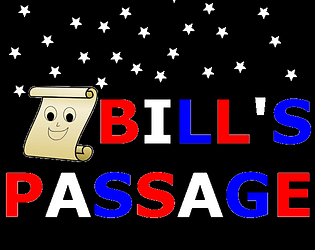Games should be fun, and this one fits the (buffalo?) bill! On account of its writing.
Benny Mattis
Creator of
Recent community posts
This game has really got me thinking about how virtue and its development might be quantified and simulated in a game format. Considering the relation between virtue and flourishing, for example, I wonder whether it could be adapted such that one's lifespan could be extended through a mastery of the virtues.
I'm finding it difficult to grasp how the elements of chance and deduction are reconciled; how how can one verify that a given action meets the third criteria for the development of virtue, "They must not arrive at this roll via chance" (p. 5)? Is this tension between moral luck and intentionality reflective of Aristotle's own ethics, with its simultaneous recognition of reason and embodied habit as essential elements of virtue?
Thanks for sharing!
It's important not to underestimate the effect of illustrating a thought experiment with a physical representation such as this; I imagine it may prove helpful for students who might otherwise tend to see such thought experiments as irrelevant and/or unbelievable. Do you feel like you gained a new intellectual or visceral appreciation for Thomson's scenario as you crafted each detail of the characters involved?
I appreciate the production quality and clarity of your document. As you indicate in the teacher's supplement, the game could be used or adapted to explore a number of different ethical theories in addition to Mill's utilitarianism. Divine command theory in particular comes to my mind, considering Plato's Euthyphro and Kierkegaard's discussion of the binding of Isaac in Fear and Trembling.
Do you think the consequentialists' arguments may change or even challenge each other depending on their particular readings of Mill and/or consequentialism in general? I wonder what the responses to various calamities would look like with one "rule consequentialist" and one "act consequentialist," for example.
Framing PM as a choose-your-own-adventure story certainly encourages me to see it in a new light! What might otherwise seem a dry, abstruse tome becomes an invitation to play in a spirit of exploration likely resembling that of its authors as they probed the possibilities of logicism. I would appreciate the inclusion of excerpts of the text itself indicating which mathematical formulae were treated in each chapter, but perhaps the piece is intended to challenge me to read the PM for myself as I navigate this representation of its structure?
Thank you for playing! And yes, there are alternate endings depending on whether the timer runs out, but I did not want to prevent anyone from seeing all the textual comparisons up to the end. From making this game and playing others in this jam, I've gained a new appreciation for the multiple different ways designers can balance narrative, gameplay, and thematic message.
I'm not familiar with Leopardi, but this work has challenged me to seek out his works, as well as to examine my own epistemic habits. A promising peek into the possibilities of hypertext in enhancing our understanding of fragmentary texts!
I did have some trouble identifying which quotes were from Leopardi, and which from Adorno. Are there more details included on your references page? I am unable to access it at the moment...
Thank you for sharing this project, and I hope to keep an eye on digitalzibaldone.net!
This looks like a fun alternative to classroom debates about whose intuitions are more justifiable (not that there's anything wrong with such debates!). I especially appreciate how the "character roll" to some extent gamifies Rawls' veil of ignorance. The explicit association of game characters with different theories (Nozick's, Parfit's, etc.) in your background document was also helpful.
Beyond Rawls' veil of ignorance and initial premises, are you generally able to pair this game with an additional discussion of the more specific political implications Rawls draws and the practical conclusions he arrives at? I would be curious to see whether playing the game might influence students to agree or disagree with Rawls' inferences.





